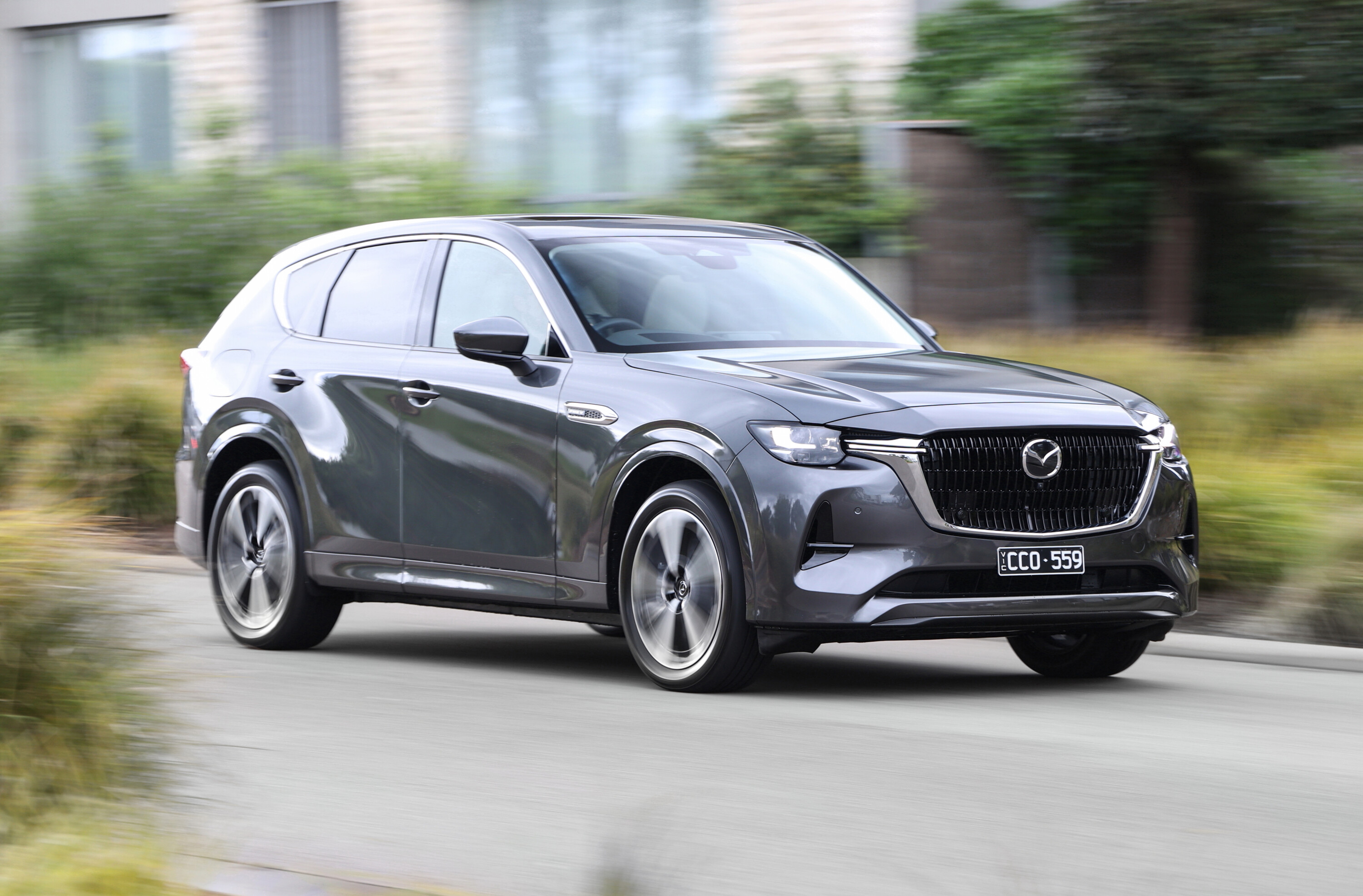
“That idea [of a six-cylinder PHEV] is something that makes me excited”
It might not be immediately apparent, but Mazda’s new CX-60 has the innards of an athlete.
Underpinning it is a longitudinally-engined platform (Mazda’s first in yonks), while a double A-arm front suspension, rear-biased AWD system, and turbo inline six are other very sporty-sounding credentials on the CX-60’s resume.
You know what else has those ingredients? Nissan’s long retired R34 Skyline GT-R.
It might be pitched as a slightly upmarket family SUV, but the CX-60 is a gym rat wearing Tom Ford. Our first drive on local roads backs that sentiment up. It’s got a few wrinkles in its around-town manners, but the harder you drive it, the better the CX-60 becomes.
But while its 3.3 litre ‘G40e’ turbo petrol six serves up 209kW and 450Nm, it’s the naturally-aspirated 2.5-litre inline four and electric motor combo of the ‘P50e’ PHEV powertrain that has the strongest punch, with a combined 241kW and 500Nm max output.
Considering the electric bits contribute 100kW and 239Nm, why didn’t Mazda simply graft that to the six-cylinder petrol as well to make a true performance hero worthy of Mazda’s long-dormant MPS label?
“The plug-in hybrid we prepared is a system that we want to sell to as many customers as possible,” explained Kohei Shibata to Wheels. As the program manager for the CX-60, Shibata has a deep knowledge of what’s capable with the CX-60’s hardware.
“That system, combined with a four-cylinder 2.5 litre, is the best match.”
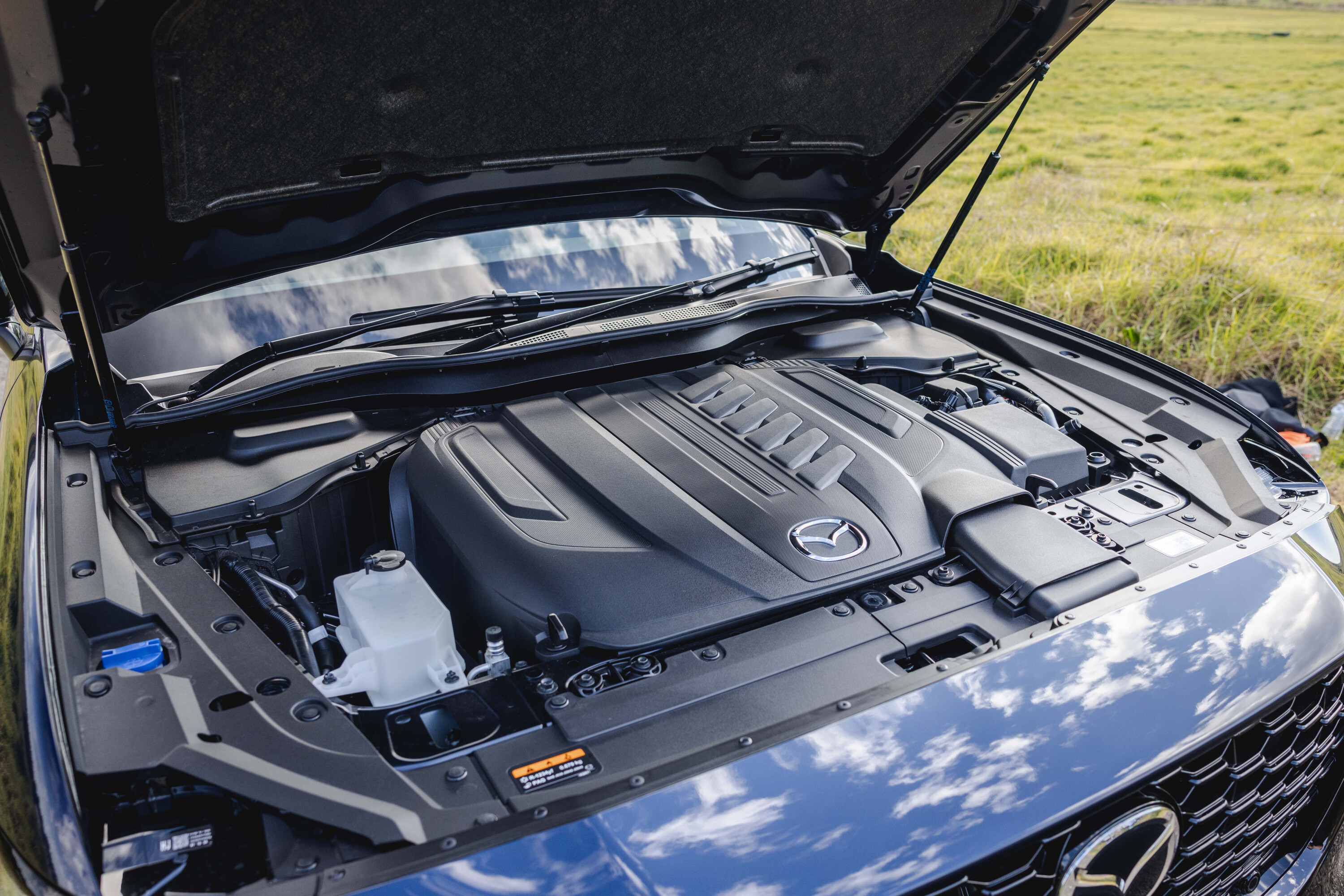
But we’re not alone in feeling the CX-60 has the right ingredients for a solid performance SUV: Shibata says Mazda’s own engineers are on the same wavelength.
The problem isn’t engineering, however. It’s marketing.
“We engineers also thought about combining that system with the six-cylinder engine, but of course that would increase the cost.”
“That idea [of a six-cylinder PHEV] is something that makes me excited,” Shibata continued, “but combining that PHEV system with the four cylinder is the best solution. Specification-wise, it [a high-performance CX-60] would have to be a very high specification. If we want to, we can make it – but it’s not something many customers can purchase in terms of the price.”
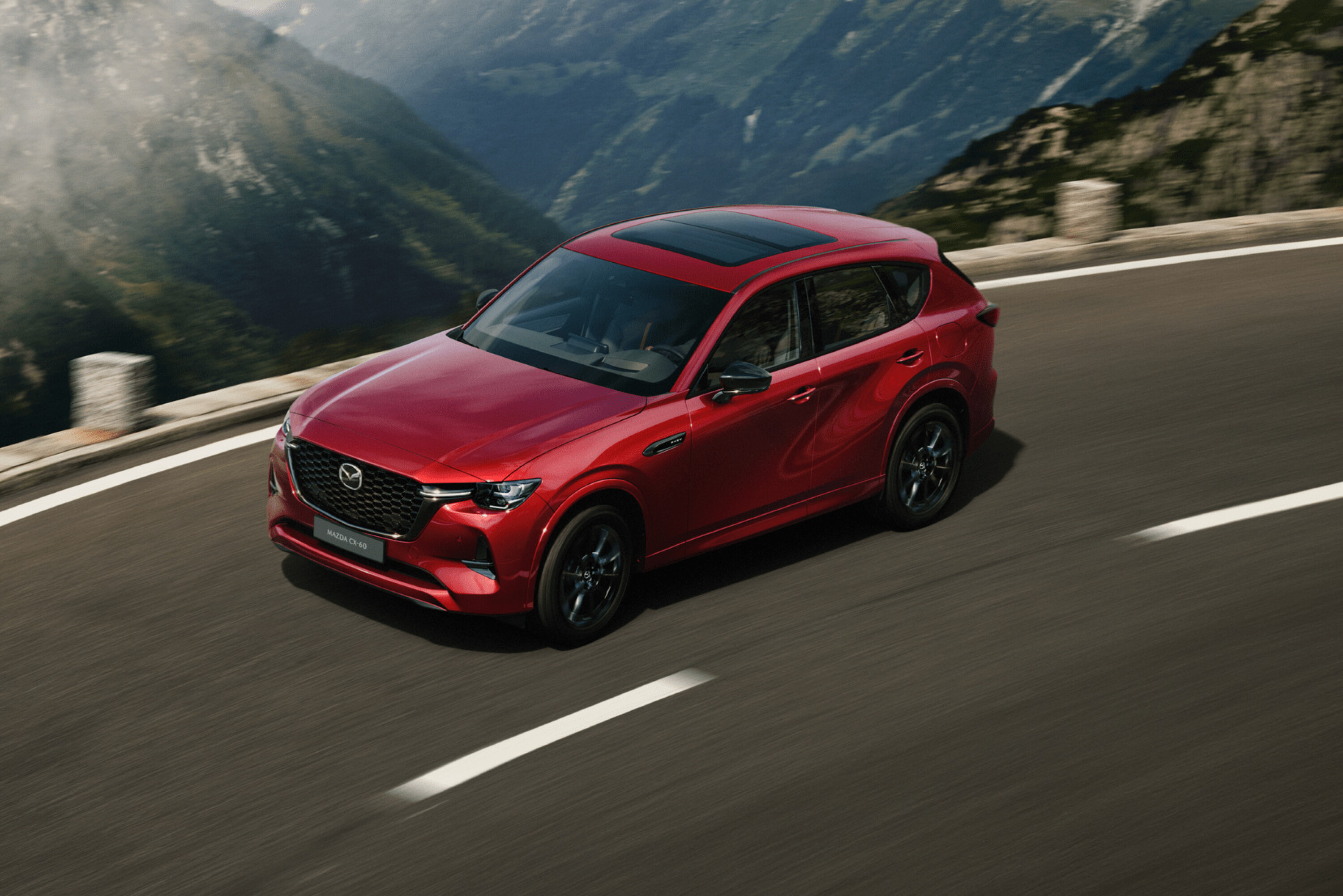
The idea of a CX-60 with a 300kW-plus output sounds like it’d make shoppers think twice about dropping $126K on a BMW X3 M40i
But is that correct? Assuming Mazda’s 3.3-litre turbo petrol six can achieve similar power and torque gains though PHEV-ification as its 2.5-litre brother, the idea of a CX-60 with a 300kW-plus output sounds like it’d make shoppers think twice about dropping $126K on a BMW X3 M40i, which generates 285kW/500Nm from its 3.0-litre inline six-pot.
Furthermore, if Mazda elects to use the gruntier 254kW/500Nm ‘G50e’ petrol inline six from the CX-90 in its notional CX-60 MPS before slapping the PHEV bits into it, it’d create a machine capable of hanging with the 375kW/650Nm BMW X3 M Competition – a car that retails for $178k.
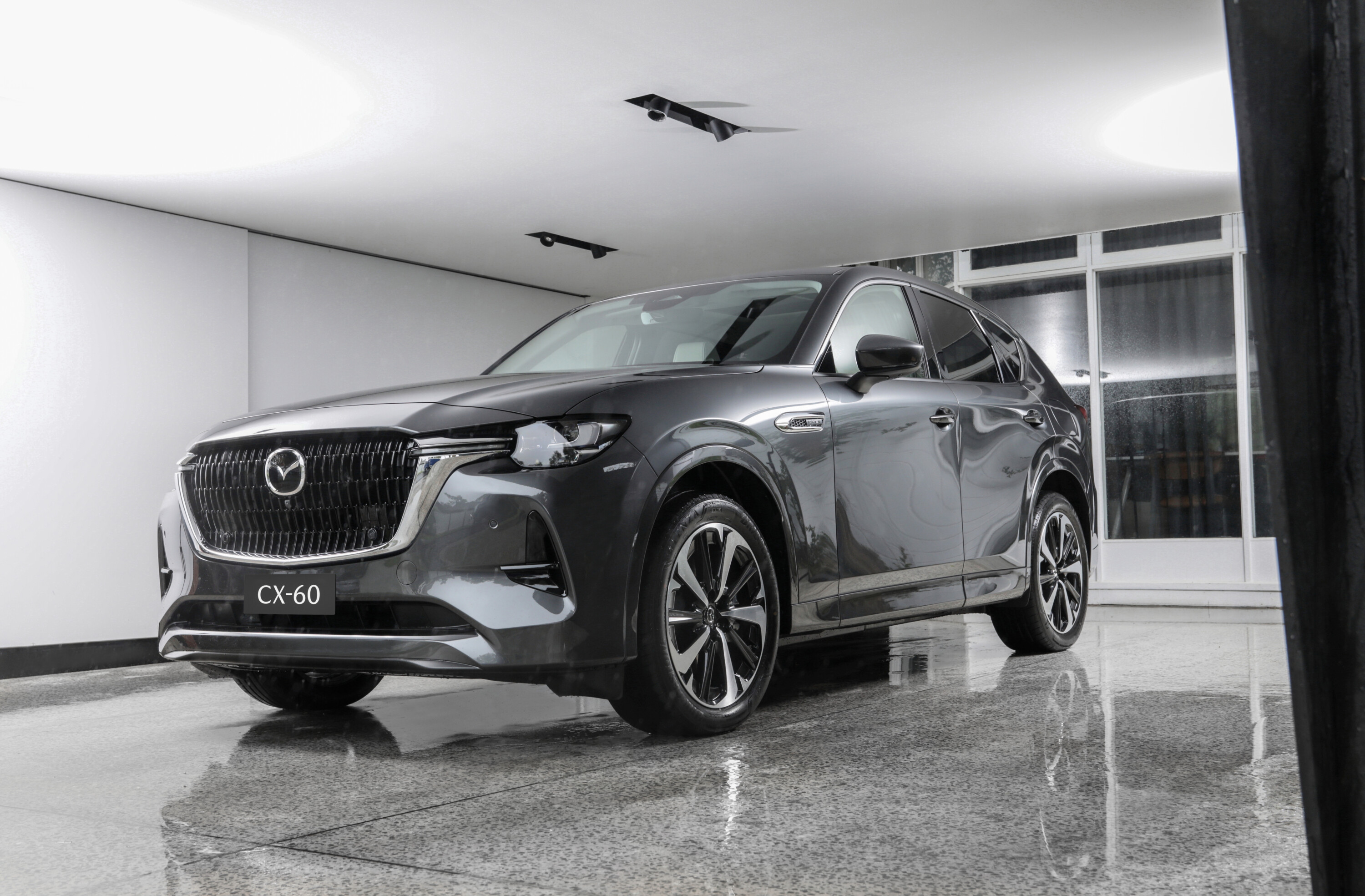
For reference, the new CX-60 range currently tops out at $85,500 for an Azami-spec P50e PHEV.
Shibata wouldn’t be drawn on how much more expensive a PHEV implementation of the six-cylinder engine would be, but even if it crept into six-figure territory it would still present good value against Euro rivals.
Considering both the M40i and X3 M account for almost a tenth of total X3 sales in this country, and Audi and Mercedes-Benz also see considerable patronage of their performance SUVs, there appears to be a respectable appetite for vehicles of that nature.
With Mazda now taking its first steps onto their turf with the regular CX-60 range, it only makes sense for it to serve up a genuinely sporty option as well – damn the cost.
We recommend
-
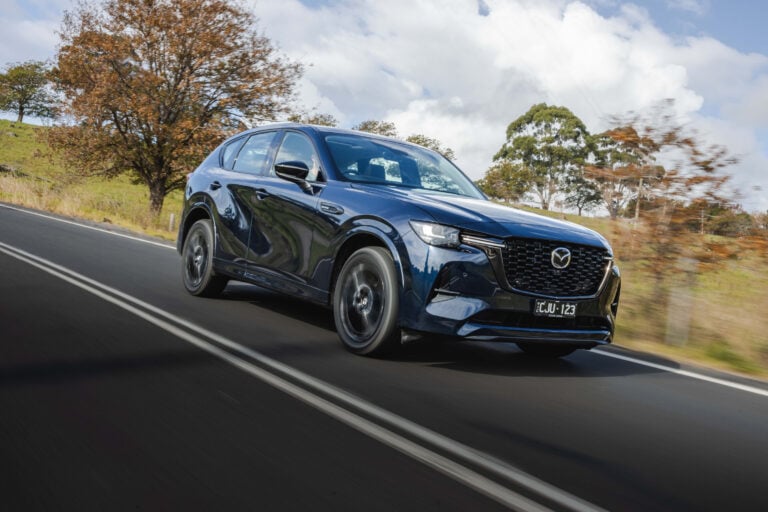 Reviews
Reviews2023 Mazda CX-60 review: Australian launch
It’s a Mazda unlike any other, but is the CX-60 worthy of the brand's ambitious upmarket foray?
-
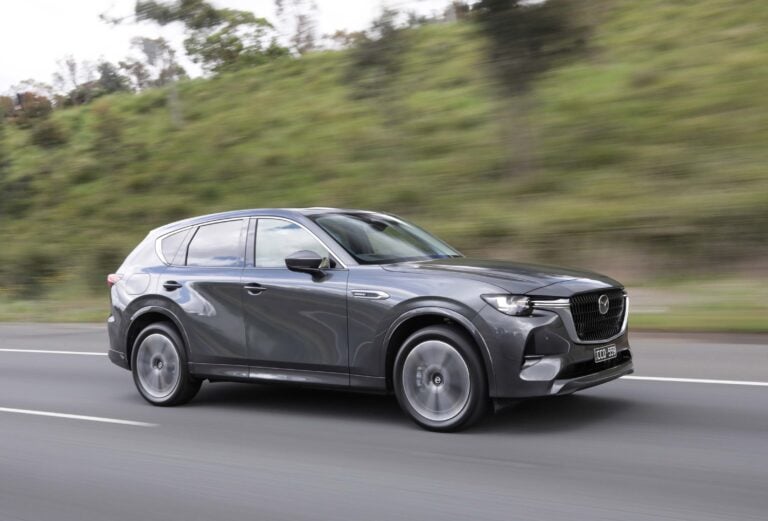 News
News2023 Mazda CX-60 pricing and features, accessories announced
CX-60 brings a new platform, fresh engines and is Mazda’s first plug-in hybrid. It’s also one of the most expensive Mazdas ever…
-
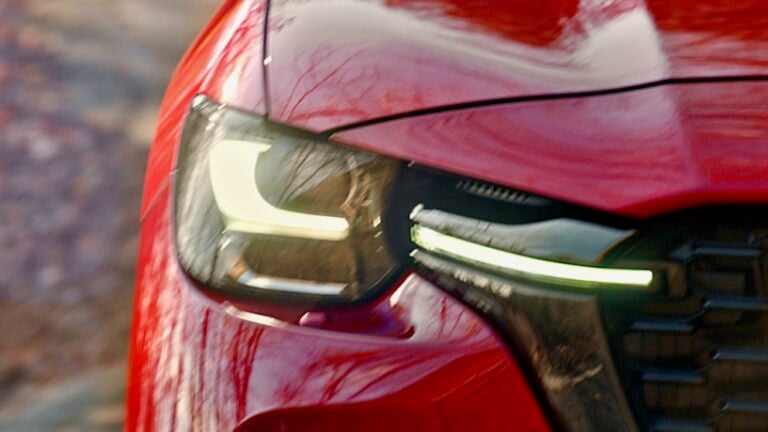 News
News2022 Mazda CX-60 PHEV teased with performance details, Australia confirmed
The first of two plug-in hybrid SUVs from Mazda has been teased, just one month before its unveiling



